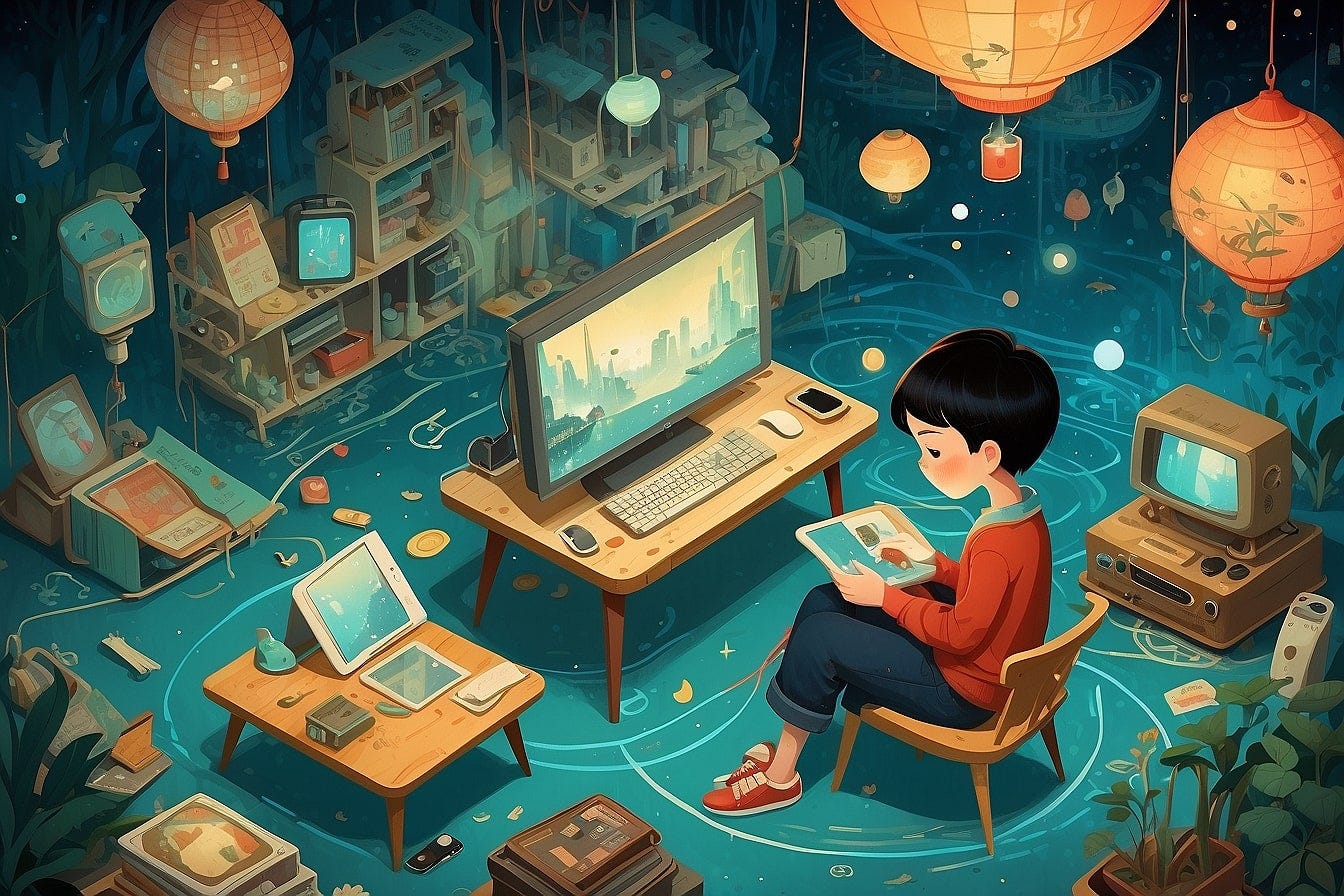Navigating a World of Distraction
From Mindlessness to Mindfulness
In today's world, we have so much technology. So much entertainment. Television, smartphones, social media, consoles, and video games. New movies and series are constantly released, ready to be streamed on demand from anywhere. We have music on demand right from our phones and tablets.
All this technology can provide us with so many opportunities and lessons in our lives. We can find a job on LinkedIn. We can learn a profound lesson from a movie. We can make new friends. But far too often, the technologies we use only provide a little if anything at all. They become distractions from our everyday life. We use them to distract our minds from our worries, emotions, and traumas. This behavior does not bode well for our long-term mental health and is one of the significant challenges of today's world. If we don't learn to use these technologies in moderation, we will become addicted. That is how powerful these technologies are. If we cannot slow down the use, we will disconnect from our inner selves and the world around us.
I can see how I was too distracted in my younger days due to my consumption of video games (especially League of Legends) and Youtube. I would be the victim of Youtube's powerful algorithms that make me stay on the platform for too long, watching videos without benefitting my life or those around me. Videos like:
Orangutan drives a golf cart.
Top 10 freekicks in the Spanish football league.
Eating wagyu beef in Japan.
How coffee affects your brain (and I don't even drink coffee. Why am I watching this again?)
I felt like I had ADD (attention deficit disorder) when I went on these hour-long Youtube raids. And I know I am far from the only one feeling like that. I would feel like a zombie, mindlessly consuming content I couldn't remember after anyway because my concentration watching all these videos was very low.
How to stop being distracted through mindfulness
We can practice mindfulness to regain our concentration and presentness to the world. Mindfulness is the energy that can heal us from our bad habits and addictions. Mindfulness helps us, first of all, to be mindful of our bad habits and patterns that we live out day to day. But mindfulness becomes the most potent tool when we feel a strong urge to go back to our old habits. If we practice mindfulness, we can catch that urge and stop it before acting on it. We can notice it and say: "hello, my bad desire. I know that you want to run away and be distracted. I know you want to play video games, so I don't have to think about the exam in two days I am worried about." If we can do this and breathe in and out deeply, our urge will recede like the waves on the beach. Each time we do this, the urge will become weaker and weaker. We will regain our focus and concentration on the present moment. With continued practice, we will develop greater self-awareness and control over our behavior, leading to a clear state of mind and a fulfilling life.



